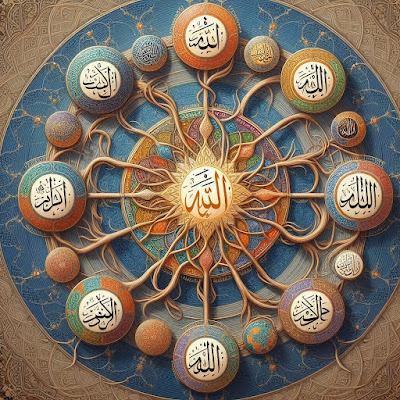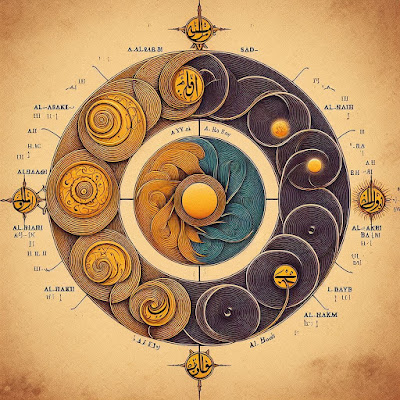🧮 The Spiritual Layers of Abjad: Understanding Arabic Letters by Digit Levels

Understand Arabic letters through Abjad numerology—single, double, triple, and quadruple digits reveal spiritual depth, divine names, and hidden Quranic symbolism When we study the Names of Allah or any spiritually rich Arabic term, we’re often looking for depth. One method that brings profound clarity is Abjad numerology — the traditional system where each Arabic letter is assigned a numerical value. But beyond just numbers, these values reflect spiritual zones of existence. Here’s how: 🔢 Abjad Letter Categories by Digit Type Digit Type Examples Range Symbolic Zone Single ا = 1, ب = 2, ج = 3 1–9 Essence / Seeds Double ي = 10, ك = 20, ل = 30 10–90 Spiritual Development Triple ق = 100, ر = 200, ش = 300 100–900 Manifestation / Will Quadruple غ = 1000 1000+ Eternal / Hidden 🧠 What Each Digit Zone Represents 1️⃣ Single Digit Letters (1–9) Zone: Essence / Seeds / Soul Potential These are core building blocks — the DNA of spiritual concepts. They represent primordial qualities...





